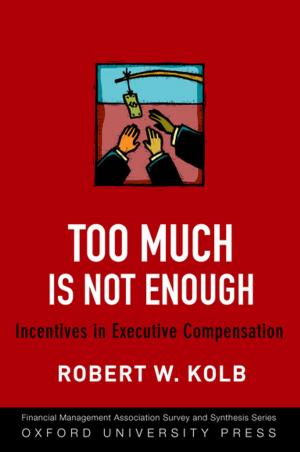Music and the French Enlightenment
Rameau and the Philosophes in Dialogue
Nonfiction, Entertainment, Music, Theory & Criticism, Theory, History & Criticism, Reference| Author: | Cynthia Verba | ISBN: | 9780190633264 |
| Publisher: | Oxford University Press | Publication: | October 3, 2016 |
| Imprint: | Oxford University Press | Language: | English |
| Author: | Cynthia Verba |
| ISBN: | 9780190633264 |
| Publisher: | Oxford University Press |
| Publication: | October 3, 2016 |
| Imprint: | Oxford University Press |
| Language: | English |
Around the middle of the eighteenth century, the leading figures of the French Enlightenment engaged in a philosophical debate about the nature of music. The principal participants-Rousseau, Diderot, and d'Alembert-were responding to the views of the composer-theorist Jean-Philippe Rameau, who was both a participant and increasingly a subject of controversy. The discussion centered upon three different events occurring roughly simultaneously. The first was Rameau's formulation of the principle of the fundamental bass, which explained the structure of chords and their progression. The second was the writing of the Encyclopédie, edited by Diderot and d'Alembert, with articles on music by Rousseau. The third was the "Querelle des Bouffons," over the relative merits of Italian comic opera and French tragic opera. The philosophes, in the typical manner of Enlightenment thinkers, were able to move freely from the broad issues of philosophy and criticism, to the more technical questions of music theory, considering music as both art and science. Their dialogue was one of extraordinary depth and richness and dealt with some of the most fundamental issues of the French Enlightenment. In the newly revised edition of Music and the French Enlightenment, Cynthia Verba updates this fascinating story with the prolific scholarship that has emerged since the book was first published. Stressing the importance of seeing the philosophes' writings in context of a dynamic dialogue, Verba carefully reconstructs the chain of arguments and rebuttals across which Rousseau, D'Alembert, and Diderot formulated their own evolving positions. A section of key passages in translation presents several texts in English for the first time, recapturing the tenor and tone of the dialogue at hand. In a new epilogue, Verba discusses important trends in new scholarship, tracing how scholars continue to grapple with many of the same fundamental oppositions and competing ideas that were debated by the philosophes in the French Enlightenment.
Around the middle of the eighteenth century, the leading figures of the French Enlightenment engaged in a philosophical debate about the nature of music. The principal participants-Rousseau, Diderot, and d'Alembert-were responding to the views of the composer-theorist Jean-Philippe Rameau, who was both a participant and increasingly a subject of controversy. The discussion centered upon three different events occurring roughly simultaneously. The first was Rameau's formulation of the principle of the fundamental bass, which explained the structure of chords and their progression. The second was the writing of the Encyclopédie, edited by Diderot and d'Alembert, with articles on music by Rousseau. The third was the "Querelle des Bouffons," over the relative merits of Italian comic opera and French tragic opera. The philosophes, in the typical manner of Enlightenment thinkers, were able to move freely from the broad issues of philosophy and criticism, to the more technical questions of music theory, considering music as both art and science. Their dialogue was one of extraordinary depth and richness and dealt with some of the most fundamental issues of the French Enlightenment. In the newly revised edition of Music and the French Enlightenment, Cynthia Verba updates this fascinating story with the prolific scholarship that has emerged since the book was first published. Stressing the importance of seeing the philosophes' writings in context of a dynamic dialogue, Verba carefully reconstructs the chain of arguments and rebuttals across which Rousseau, D'Alembert, and Diderot formulated their own evolving positions. A section of key passages in translation presents several texts in English for the first time, recapturing the tenor and tone of the dialogue at hand. In a new epilogue, Verba discusses important trends in new scholarship, tracing how scholars continue to grapple with many of the same fundamental oppositions and competing ideas that were debated by the philosophes in the French Enlightenment.















